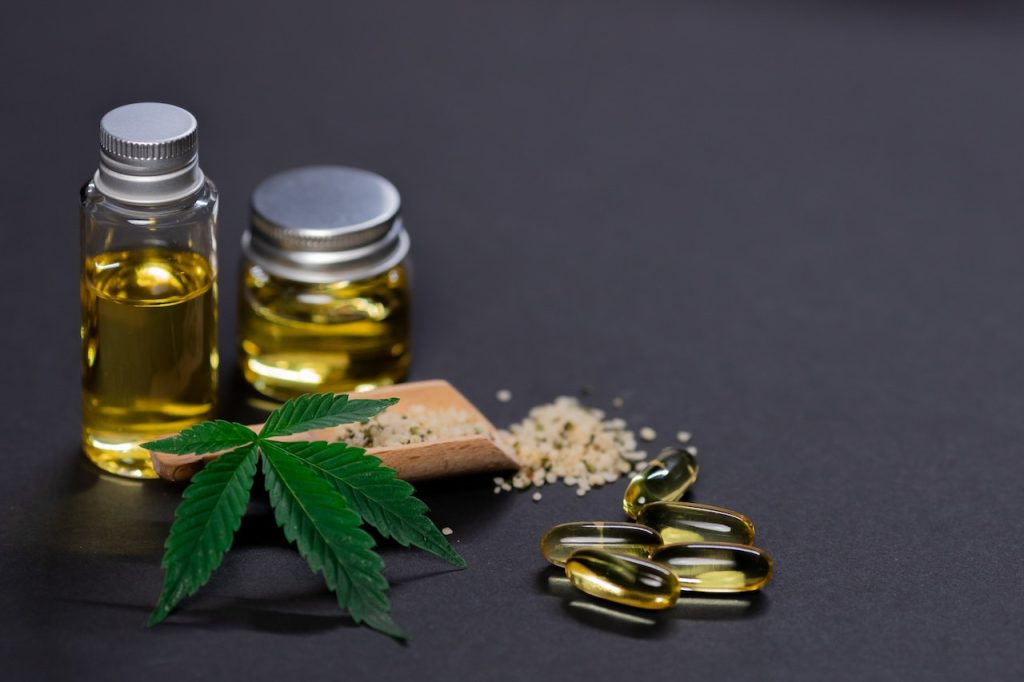
Products having cannabidiol (CBD) appear to be popular nowadays, appealing remedy for a large range of ailments, from sleep problems and warm flashes to persistent pain and seizures. Some of these insurance claims have value to them, while several of them are simply buzz. Yet it won’t hurt to attempt, right? Well, not so quick. CBD is a naturally active compound, and because of this, it might additionally have unintentional consequences. These consist of recognized negative effects of CBD, yet also unexpected communications with supplements, natural items, and non-prescription (OTC) and prescription drugs.
Doubling up on negative effects
While normally taken into consideration risk-free, CBD might trigger sleepiness, lightheadedness, nausea, looseness of the bowels, dry mouth, and, in uncommon circumstances, damage to the liver. Taking CBD with other drugs that have comparable side effects may enhance the threat of undesirable signs or poisoning. To put it simply, taking CBD at the same time with OTC or prescription medications and materials that create sleepiness, such as opioids, benzodiazepines (such as Xanax or Ativan), antipsychotics, antidepressants, antihistamines (such as Benadryl), or alcohol might cause boosted drowsiness, tiredness, and perhaps accidental falls and mishaps when driving. Raised sedation and exhaustion may additionally take place when utilizing particular natural supplements, such as kava, melatonin, and St. John’s wort. Taking CBD with stimulants (such as Adderall) may lead to reduced hunger, while taking it with the diabetic issues medicine metformin or certain heartburn medications (such as Prilosec) might enhance the risk of diarrhea.
CBD can modify the results of various other medications
Numerous drugs are broken down by enzymes in the liver, and CBD might complete for or hinder these enzymes, bring about too much or not enough of the drug in the body, called modified concentration. The transformed focus, consequently, may bring about the medication not working, or an enhanced risk of side effects. Such medication communications are normally tough to forecast but can cause unpleasant and in some cases major troubles.
Researchers from Penn State College of Medication evaluated existing info on 5 prescription CBD and delta-9-tetrahydrocannabinol (THC) cannabinoid medications: antinausea medicines used throughout cancer cells therapy (Marinol, Syndros, Cesamet); a drug utilized largely for muscle spasms in multiple sclerosis (Sativex, which is not currently readily available in the US, yet readily available in various other countries); and an antiseizure drug (Epidiolex). On the whole, the scientists recognized 139 medications that may be influenced by cannabinoids. This listing was additional tightened to 57 drugs, for which transformed focus can be unsafe. The listing includes a selection of medications from heart drugs to prescription antibiotics, although not all the drugs on the listing might be impacted by CBD-only items (some are just impacted by THC). Potentially serious medicine communications with CBD consisted of
- a common blood thinner, warfarin
- a heart rhythm medication, amiodarone
- a thyroid medicine, levothyroxine
- a number of medications for seizure, including clobazam, lamotrigine, and valproate.
The researchers further warned that while the listing may be made use of as a starting point to recognize prospective drug communications with cannabis or CBD oil, plant-derived cannabinoid products might provide very variable cannabinoid focus (unlike the FDA-regulated prescription cannabinoid medicines previously pointed out), and might consist of many various other compounds that can enhance the risk of unintended medicine interactions.
Does the kind of CBD matter?
Definitely. Breathed in CBD enters into the blood the fastest, getting to high focus within half an hour and boosting the risk of acute side effects. Edibles need longer time to take in and are much less most likely to generate a high focus top, although they may at some point reach high sufficient degrees to cause an issue or interact with various other medications. Topical formulas, such as lotions and lotions, may not take in and get involved in the blood in sufficient amount to interact with various other medications, although there is very little info on how much of CBD gets involved in the blood ultimately. All of this is even more made complex by the truth that none of these products are regulated or looked for purity, concentration, or security.
The bottom line: Speak to your doctor or pharmacist if utilizing or considering CBD
CBD has the possible to interact with lots of various other products, including over the counter drugs, organic items, and prescription drugs. Some drugs should never ever be taken with CBD; the use of various other medications might require to be modified or minimized to prevent severe issues. The repercussions of medicine communications additionally depend on lots of various other variables, consisting of the dose of CBD, the dose of one more medication, and a person’s underlying health problem. Older adults are more vulnerable to medicine communications since they frequently take several medications, and as a result of age-related physiological changes that influence just how our bodies procedure drugs.
People considering or taking CBD products must constantly discuss their use to their medical professional, particularly if they are taking other drugs or have underlying medical conditions, such as liver condition, kidney illness, epilepsy, heart issues, a weakened immune system, or get on drugs that can compromise the body immune system (such as cancer medicines). A pharmacologist is an excellent resource to help you learn more about a potential interaction with a supplement, a herbal item (most of which have their very own medication interactions), or a non-prescription or prescription medicine. Don’t presume that even if something is natural, it is secure and trying it won’t injure. It extremely well might.

